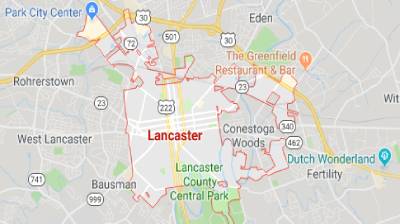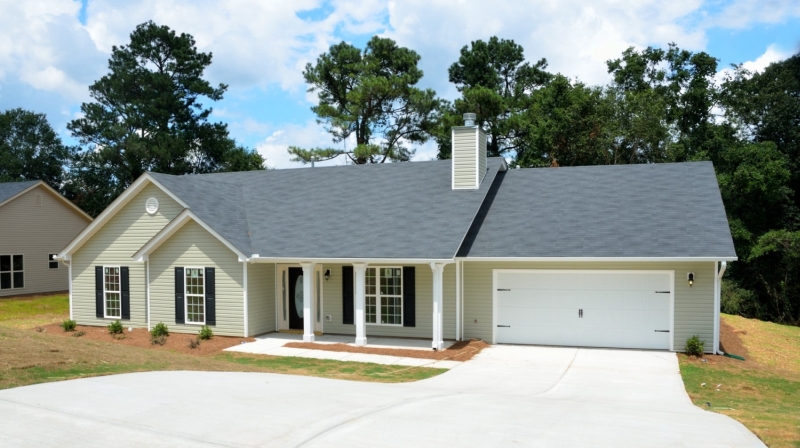Mortgage Programs & Loan Types
Click on the loan type your interested in learning more about for more information!
Purchase and Remodel Mortgages
Self Employed or no Income/Asset Verification
Part / Full Time Farm Mortgages
Please Note: The information contained on this website is for informational purposes only. Loan programs change frequently! We can not guarantee that all programs are available at all times. Also some programs are available based on the borrowers credit and income situation!
Conventional Mortgages: are any mortgage that is not a VA or FHA loan. Conventional mortgages may be conforming or non-conforming.
Have a Question? Click here!
Return to top of page.
Conforming Mortgages: Any loan that conforms to the underwriting guidelines of Fannie Mae or Freddie Mac is called a “conforming loan”. Guidelines such as the maximum loan amount, down payment percentage, borrower and co-borrower credit, borrower and co-borrower income requirements, and appropriate property types.
Have a Question? Click here!
Return to top of page.
Non-Conforming Mortgages: Any loan that doesn’t conform to the underwriting guidelines of Fannie Mae or Freddie Mac is called a “non-conforming loan”.
Have a Question? Click here!
Return to top of page.
Residential Mortgages: Loans for primary and secondary residences.
Have a Question? Click here!
Return to top of page.
FHA/VA Mortgages: The Federal Housing Authority backs mortgage loans for people who don’t fit the traditional underwriting criteria for getting approved for a home of their own.
People that benefit from these loans are first time home buyers, people who don’t have much credit history, and people who have had credit issues in the past but have everything back on track.
The interest rates on FHA loans are comparable to conventional rates.
FHA can lend up to 97% of the home value, and can be refinanced any time without a pre-payment penalty, and without having to qualify all over again. As long as you pay the mortgage on time, you can do a streamline refinance anytime interest rates fall.
In many cases, in high interest rate environments, FHA loans are considered superior to conventional loan because they can be refinanced so easily when rates drop.
FHA also allows gift funds from family members for the down payment, and also allows home sellers to pay for closing costs, so you don’t have to wipe out your bank account to get into the home of your dreams.
Because FHA loans are designed to help an undeserved segment of the population, there are FHA loan limits for each county in the country, usually somewhere between $120,000 and $180,000. Call a representative today and see if you can take advantage of an FHA loan and what the loan limit is for your county!
Have a Question? Click here!
Return to top of page.
Commercial Mortgages: Loans to finance commercial properties. For multi-family homes and apartment buildings, offices, industrial buildings, and retail development plans. Loan to Value typically up to 80%. We can also finance raw land depending on the property and situation.
Have a Question? Click here!
Return to top of page.
Construction Mortgages: With one time closing. We arrange permanent financing prior to you acquiring your building lot and starting construction.
Have a Question? Click here!
Return to top of page.
Part Time Farm and Full Time Farm Loans: Loan programs are available for working farms. Borrowers may qualify based on operating and borrowers income. Loan programs for part time farms typically require the borrower to have a strong income and high credit rating.
Have a Question? Click here!
Return to top of page.
Purchase and Remodel mortgages: use the equity difference between the purchase price and the appraised value of the property to finance home improvements.
Have a Question? Click here!
Return to top of page.
100% Finance mortgages: 100% financing mortgages are available for some borrowers. Typically these programs require a minimum credit score of 700 and have other requirements/restrictions that apply. Contact us for details!
Have a Question? Click here!
Return to top of page.
80-20 Mortgages: involve an 80% first lien mortgage with a second 20% mortgage at a slightly higher mortgage interest rate. 80-20 programs are also available to borrowers with “less than perfect credit”. 80-20 programs require specific credit scores and also certain underwriting requirements may apply.
Have a Question? Click here!
Return to top of page.
Fixed Rate Mortgages: Fixed rate mortgages have an interest rate that is valid for the life of the loan. Fixed rate mortgages are available for 10, 15, 20 and 30 year terms.
Have a Question? Click here!
Return to top of page.
Adjustable Rate Mortgages (ARM): Adjustable rate mortgages available have a fixed interest rate for the the start of the term and a floating rate thereafter. Once the initial period expires (typically 1, 3, 5 or 7 years depending on the program) the adjustment occurs either once every 6 months or once every year (depending on the program) and fluctuates following published financial indexes.
An ARM that adjusts every 6 month will normally have a 1% cap (limit) per adjustment and a 6% cap (limit) over the life of the loan. Caps vary from mortgage program to mortgage program. Contact us for specifics.
An ARM that adjusts every 1 year will normally have a 2% cap (limit) per adjustment and a 6% cap (limit) over the life of the loan . Caps vary from mortgage program to mortgage program. Contact us for specifics.
Have a Question? Click here!
Return to top of page.
Jumbo Mortgages: These are available for borrowers purchasing or refinancing homes over $333,700 for 1 & 2 unit properties, and higher limits are available in Alaska and Hawaii, and for 3 & 4 unit properties. Jumbo mortgages may have different underwriting requirements which vary from one loan program to another. Some options that are available for jumbo loans are: no income verification and no asset verification.
Have a Question? Click here!
Return to top of page.
Portfolio Mortgages: Most loans today are sold on the secondary market to either Fannie Mae, Freddie Mac or number of other institutions.Some loans are kept by the bank that originally funds the loan. Loans kept by the original funding bank are called portfolio loans. Typically when a lender intends to keep a loan in their own portfolio they can be more flexible on the underwriting requirements as the loan does not have to fit the necessary requirements to be sold on the secondary market.
Have a Question? Click here!
Return to top of page.
Private Investor Mortgages, Private Equity Loans, Hard Money Loans: Are loans made by private investors with their own money. Typically they are for shorter terms and carry a higher interest rate than conventional conforming mortgages however, the private lenders can be much more flexible with their lending as they do not have to follow the underwriting requirements of conforming loans. If they find the investment sound and the asset value adequate they may make the loan.
Have a Question? Click here!
Return to top of page.
Self Employed or No Income/Asset Verification: Typically a borrowers income is verified either through the last 2 years W2’s or in the case of the self-employed their last 2 years tax returns. However in certain cases borrowers prefer not to have their income verified. Depending on the borrowers personal situation they may not show enough net income on their tax returns to qualify for the loan they need.
Some loan programs have No Income Verification options. Typically the interest rates are slightly higher than conventional income verified mortgages. Some “No Income Verification” programs require the borrower to sign IRS form 4506 or 8821 which allow lenders to request your tax returns directly from the IRS.
Programs are also available that do not require verification of assets. These programs are used by individuals who do not want to disclose their assets.



